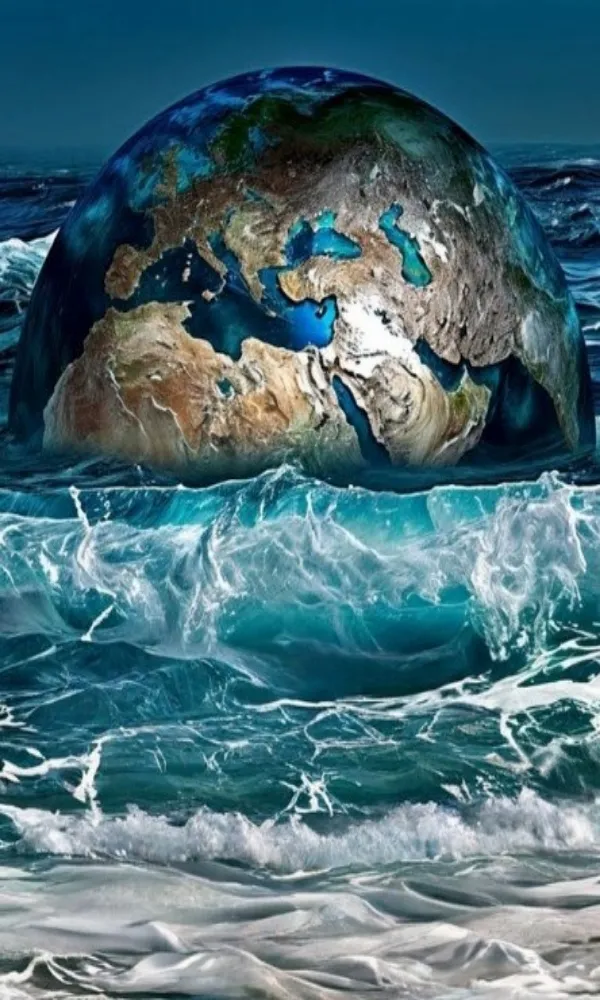When you look at Earth from space, most of what you see is blue — that’s because oceans cover about 70 % of the planet’s surface. Oceans are vast, deep, and full of life — and they do many jobs that help all creatures, including us humans, survive and thrive. Let’s dive into the many reasons why the ocean is so important.
The ocean helps make our air and regulates the climate
One of the most surprising roles of the ocean is that it helps make some of the oxygen we breathe. Tiny plants and algae in the sea use sunlight to make food (photosynthesis), releasing oxygen as a by-product. In fact, seaweed and ocean plants together produce a big chunk of Earth’s oxygen.
The ocean also acts as a climate regulator. Because water can hold heat, the ocean absorbs a lot of the extra heat from the atmosphere. This helps keep land temperatures more stable. Ocean currents move warm water toward the poles and cold water toward the equator, helping distribute heat around the world.
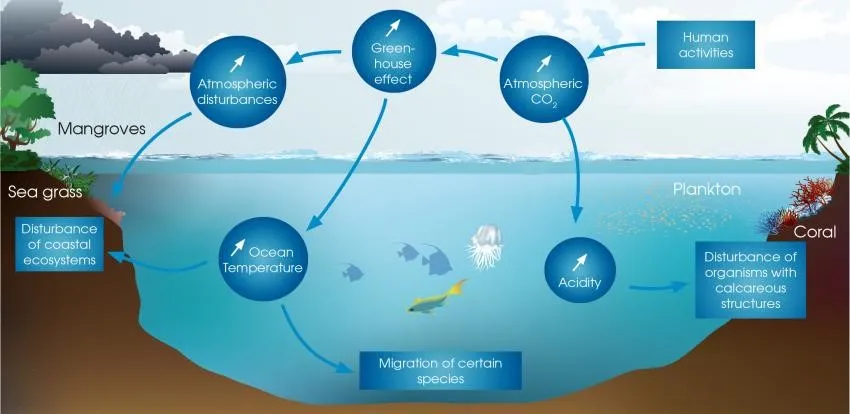
Without the ocean doing this work, parts of Earth might become much hotter or colder, and the weather would be much more extreme.
A huge home for marine life
Oceans are like huge homes or cities underwater. They host more kinds of life than you can imagine — from tiny plankton to giant whales.
There are different zones in the ocean:
- Sunlit zone: Where the light reaches and plants grow
- Twilight zone: Dimmer, fewer plants, many creatures
- Midnight zone and deep zones: Very dark and extreme, with strange creatures adapted to live there
These zones together make up the ocean ecosystem, which also includes coastal areas, reefs, mangroves, and shorelines.
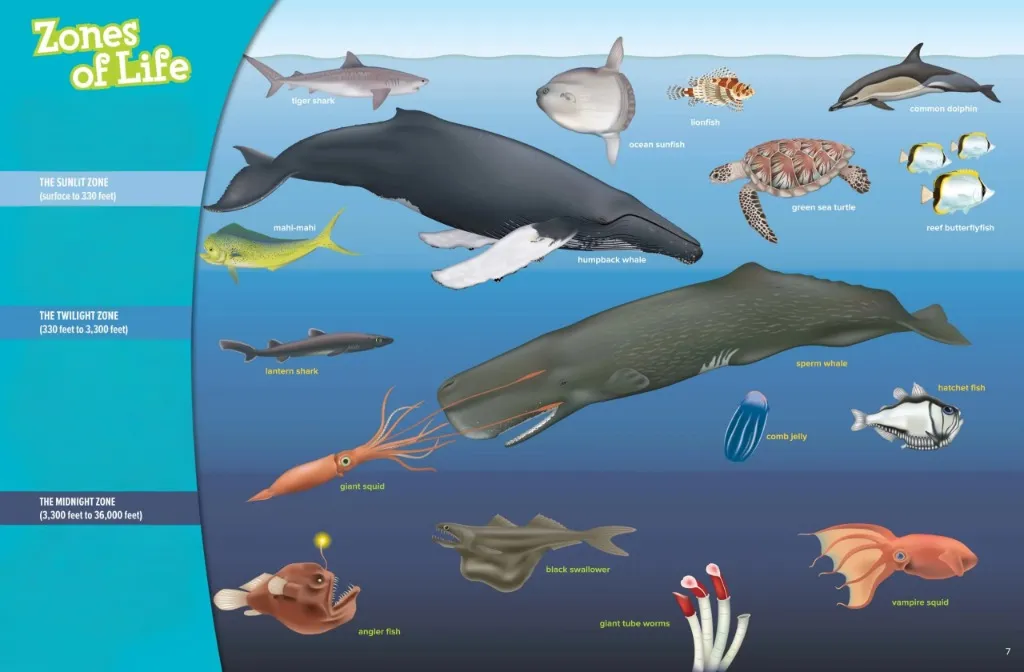
Coral reefs, often called the ‘rainforests of the sea’, are especially rich in species and important to keep marine life safe and thriving.
The ocean feeds us and provides livelihoods
The ocean gives us food — lots of fish, shellfish, seaweeds, and more. For many coastal countries, seafood is one of the main sources of protein for people.
Not only food, the ocean also supports millions of jobs: fishermen, fish sellers, marine biologists, divers, and many more.
Furthermore, people get medicines, energy sources, and other materials from the sea. It’s a treasure chest of resources.
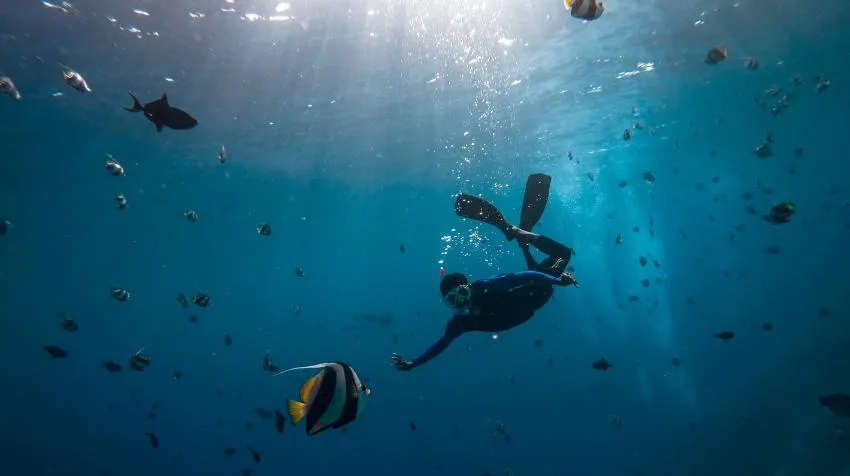
Transportation, Trade and Economy
Much of the world’s trade — products, goods, materials — moves across the seas. Shipping by boat is efficient and cost-effective. The ocean is like the planet’s highway for trade.
Coastal towns and islands often depend on marine tourism: people come to enjoy beaches, coral reefs, diving, and the sea life. That brings income and jobs.
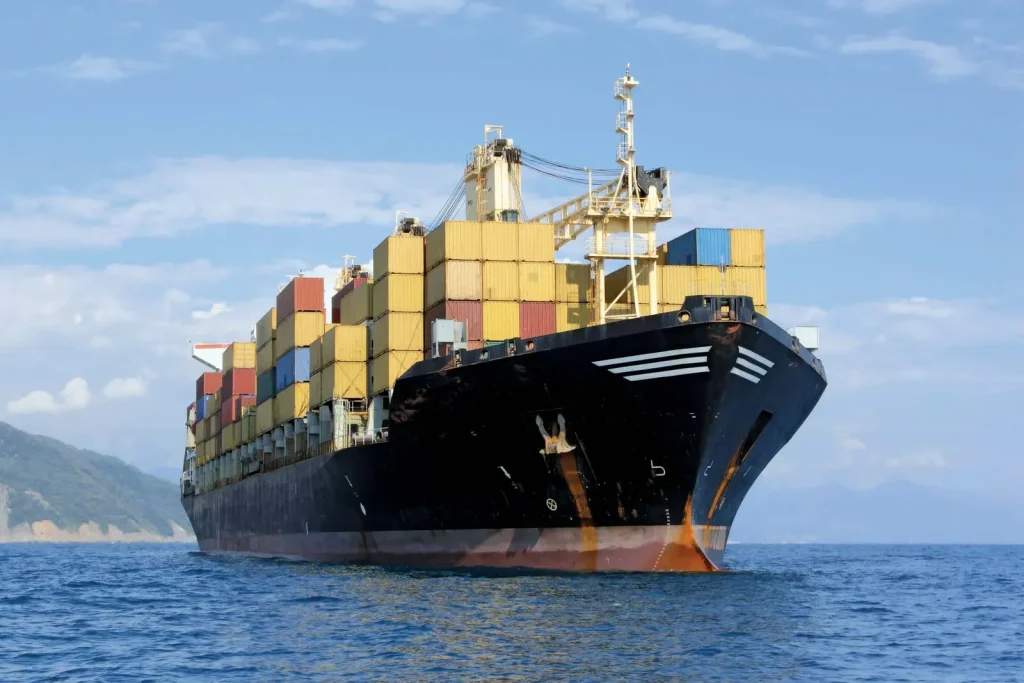
Storm Protection and Coastal Defence
Oceans and their coastal ecosystems, like mangroves, marshes, and reefs, act as natural barriers. During storms, tsunamis, and high waves, they help reduce damage to land and people living near the coast.
Without these protections, storm damage would be much worse in many coastal regions.
Threats to oceans and why we must protect them
Even though oceans are powerful, they are under threat from human actions. Here are some big problems:
- Pollution: Plastics, chemicals, oil spills, and waste harm ocean life.
- Overfishing: Catching too many fish faster than they can reproduce.
- Habitat destruction: Destroying reefs, mangroves, and seabeds.
- Acidification: More carbon dioxide in the air makes oceans more acidic, harming shellfish and coral.
- Climate change: Warming waters damage many species and ecosystems.
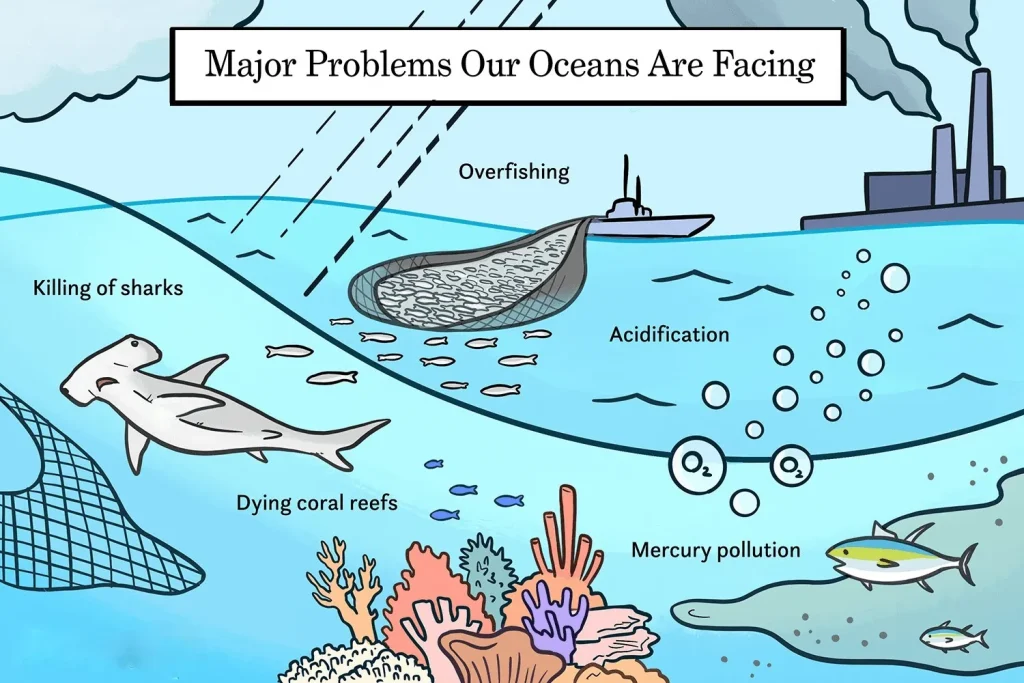
If these threats are not addressed, many marine species could decline or disappear, ecosystems will collapse, and humans will suffer too.
How we can help protect the oceans
Kids and adults alike can do things to help:
- Reduce plastic use: Use reusable bottles, bags. Don’t throw plastic into rivers or the sea.
- Support marine protected areas: Places where fishing or damaging activities are restricted so nature can recover.
- Learn and teach: Share what you know about oceans with friends, family, and schoolmates.
- Clean-ups: Join or organise beach or river clean-ups.
- Eat sustainably: Choose fish and seafood from sustainable, well-managed sources.
- Support organisations: Give time or support groups working to protect oceans.
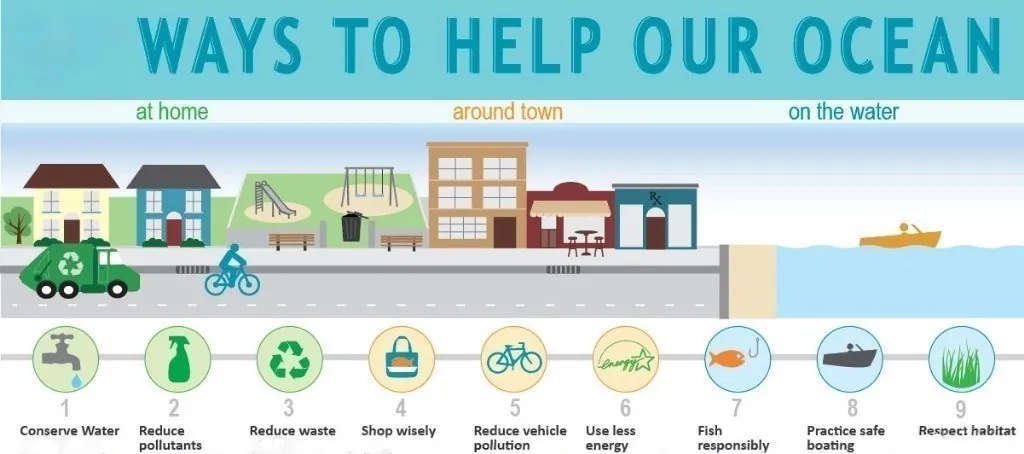
Why it all connect
Everything is connected — land, rivers, forests, atmosphere, and oceans. The water cycle, weather, climate, and life all rely on the ocean. A healthy ocean means a healthier planet for everyone — people, animals, and plants.
In short:
- The ocean gives us air, food, jobs, and protection
- The ocean helps regulate the climate
- The ocean is home to amazing life
- Damaging the ocean hurts us all
- Protecting the ocean is protecting our future
For more interesting articles, please visit www.kidzherald.com

